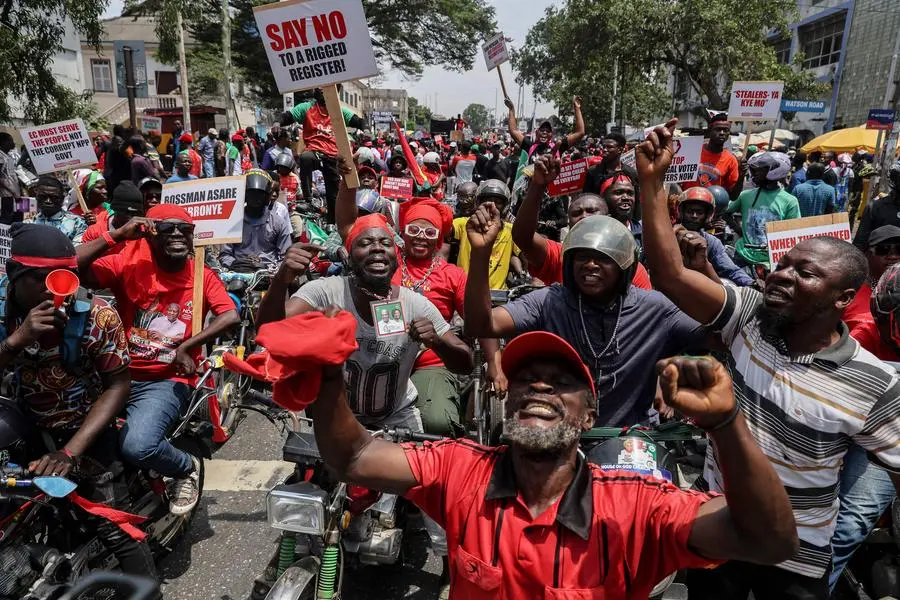PHOTO
Ghanaians are set to stage a three-day protest this week demanding government action on illegal gold mining and the release of 54 activists detained for demonstrating against the illicit activity.
The government's handling of illegal mining -- particularly its impact on natural resources and rural livelihoods -- has become a flashpoint issue in the run-up to the West African country's presidential elections in December.
Fifty four members of the Democracy Hub pressure group were arrested on September 22 and 23 for blocking roads and burning tyres, and remanded in custody for two weeks, prompting outrage from the public and politicians.
Fresh protests are scheduled to start on Thursday and culminate in a vigil on Saturday, to demand both the activists' release and government action to stop illegal mining.
The #FreeTheCitizens rallies have been authorised by the Ghanaian police.
"We're embarking on a protest to save our water bodies and to free our citizens. Most of them have been detained unlawfully," said Joshua Buernortey Boye-Doe, one of the organisers.
"Don't think this is going to be a fruitless venture. It's for our future generations.".
Illegal mining, known locally as "galamsey", has led to the contamination of major rivers, destruction of forests and farmland, and severe health risks.
"This is not politically motivated," Buernortey Boye-Doe told AFP. "Water is a very essential resource, so we need to protect it."
John Mahama, leader of the opposition National Democratic Congress and a candidate in the December 7 election, said the arrest of the Democracy Hub activists was "high-handed and an abuse of their rights".
"Draconian judicial decisions such as this won't stop them from speaking out," he wrote on Facebook.
Ghana, a country of 33 million people, is a major gold and cocoa producer.
Since 2022 it has been struggling with an economic crisis and rampant inflation that have led it to default on its foreign debt.
Economic woes have encouraged a growing number of cocoa producers to sell their lands to illegal mining outfits.
In addition to gobbling up agricultural land, illegal mining, which uses chemicals to extract the gold, has polluted rivers and water tables.





















